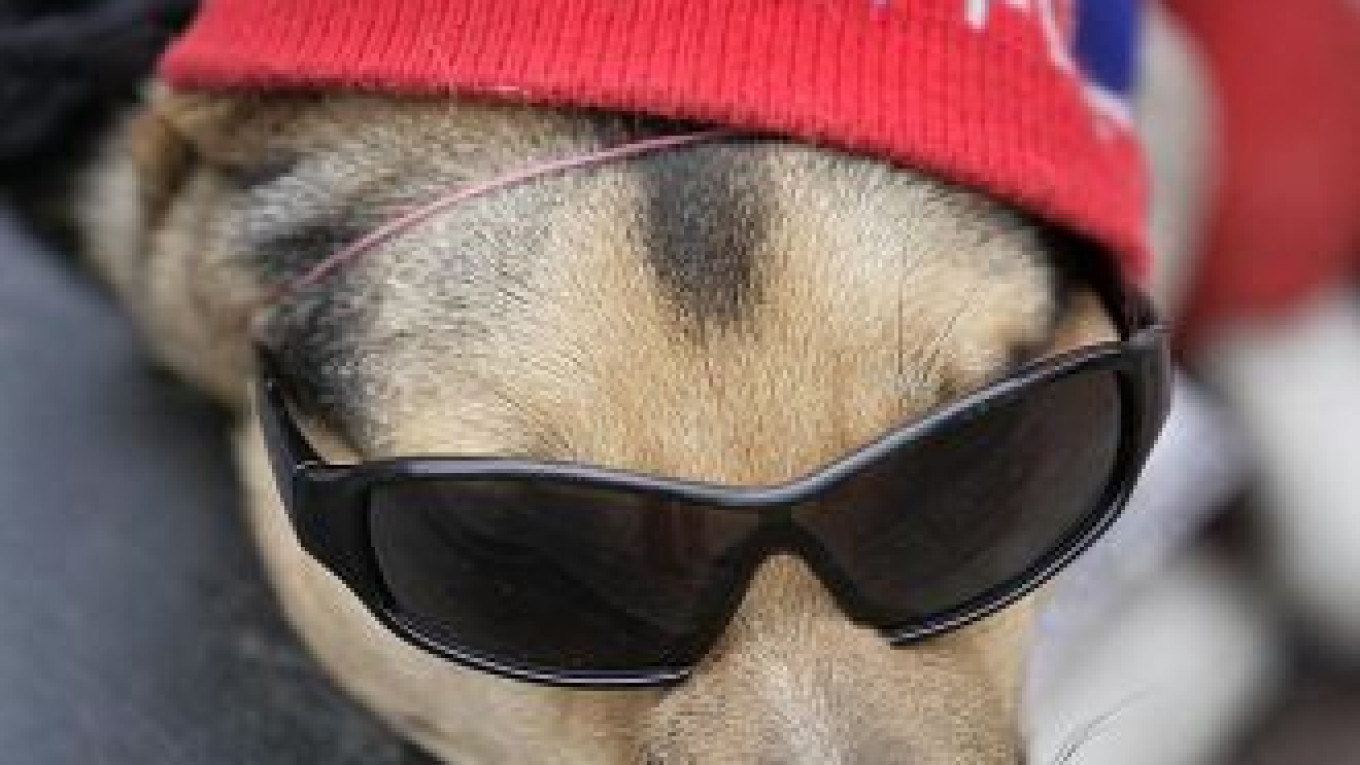Prime Minister Vladimir Putin's approval rating has fallen to its lowest level in more than a decade and support for United Russia has dropped sharply a month before State Duma elections, according to a new opinion poll.
The Levada Center poll results indicate that the ruling United Russia party could fail to maintain its two-thirds majority in the Duma after the Dec. 4 elections.
Those elections will be followed by a presidential vote in March in which Putin intends to return to the presidency.
With 61 percent of respondents expressing approval for Putin's actions as prime minister, the Oct. 28-Nov. 1 poll indicates that Putin will have little trouble carrying out his plan to return to the Kremlin.
But his approval rating, down from 66 percent in a Levada poll conducted Oct. 21-24, was the lowest since August 2000, when he was dogged by the botched reaction to a naval disaster that killed all 118 crewmen aboard the Kursk submarine.
His party's support level dropped more drastically, with 51 percent of respondents who plan to vote in the Duma elections saying they would vote for United Russia if they were held on the following Sunday — down from 60 percent the previous week.
President Dmitry Medvedev's approval rating also dropped, to 57 percent from 62 percent the previous week.
Levada deputy director Alexei Grazhdankin said the declines might be a delayed reaction after Putin and Medvedev revealed on Sept. 24 that they plan to swap jobs next year, with Putin running for president and making Medvedev prime minister.
United Russia has said it hopes to retain its two-thirds majority, the minimum needed to approve constitutional changes.
But Levada said the latest results indicated that it would likely win no more than 60 percent of the seats, with the exact proportion depending on how many parties secure Duma seats.
United Russia won 64 percent of the vote in the last election in 2007, more than enough for a two-thirds majority in the 450-seat chamber that Putin has used as both a source of political support and a lever to enact legislation.
Putin has always been more popular than United Russia, and while he is its leader he has never formally joined the party.
Putin helped United Russia by leading its candidate list in the 2007 election but has relegated that role to Medvedev in the December vote — a move analysts say is calculated to avoid damage to himself if the party posts a poor showing.
Levada said the polls of about 1,600 adults across Russia had a margin of error of plus or minus 3.4 percentage points.
Political analyst Mikhail Vinogradov said the leaders would have a hard time getting their numbers back up. "We can see that they are unable to overcome the fatigue that people feel about politics, about those in power and about United Russia," he said.


